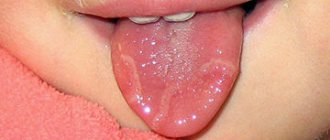29.01.2020 22039 0
- When to introduce the first complementary foods
- How to tell if your baby is ready for solid food
- Diet for young children
- Common mistakes in complementary feeding
- Prohibited products
- What to do if your child cannot eat solids
- Gameplay for eating
When a small child appears in a family, parents are faced with a difficult task: not only to raise and educate, but also to instill in the child all the necessary skills. For example, young parents are often concerned about how to teach their child to chew. We have collected advice for you from famous Russian and foreign pediatricians that will help you find the optimal solution.
What are the difficulties?
For adults, the process of chewing food seems completely natural. But the child only has a sucking reflex, and even liquid puree becomes unusual and unfamiliar food for him. In addition, the same period is characterized by other reflex reactions, due to which solid pieces of food that enter the mouth are rejected. They weaken by 4 months, but there is no need to wean the baby from the breast at this age: mother’s milk “adjusts” to the baby’s needs, its composition changes over time.
Dangerous causes of tongue protrusion in children
If the baby's tongue sticks out constantly, parents should consult with their local doctor. A particularly alarming symptom is the tongue falling out of the mouth during sleep.
If during the waking period the baby often opens his mouth, his tongue is not held in the oral cavity, and incessant drooling is observed, then there is a possibility of developing an infectious disease. In addition, similar manifestations occur in infants with pathologies of the endocrine system or suffering from neurological diseases.
Hypothyroidism in a child
A decrease in the functions of the thyroid gland can cause a disease such as hypothyroidism. Most often it occurs due to a lack of iodine in the mother’s body during pregnancy. The consequences for the child can be very serious: with hypothyroidism, there is a lag in intellectual and physical development.
To diagnose the pathology, blood is taken from the heel of newborns in the maternity hospital. If a disease is detected, the mother is invited to consult a specialist. If hypothyroidism was not detected immediately after birth, then it can be determined at 2-3 months of life by the following signs:
- the skin has a marbled tint;
- the child sticks out his tongue, his mouth is open regardless of the need for food;
- the baby lags behind his peers in development;
- the baby's skin is unnaturally dry;
- the child’s tongue swells and does not fit in the oral cavity;
- the nasolabial area has a bluish tint;
- the newborn is not gaining weight well;
- constipation occurs.
Before starting treatment, the baby is carefully examined. They take tests for thyroid hormones and perform an ultrasound of this organ. Next, hormonal therapy is prescribed.
High blood pressure
Another reason that a child’s tongue falls out of the mouth is a neurological pathology resulting from a birth injury.
Most often, neurologists diagnose high intracranial pressure in infants. At the same time, children experience tearfulness, sleep disturbances, and poor appetite.
A characteristic sign of the disease is a thrown back head, an open mouth and a protruding tongue. Also, a child with high intracranial pressure has the following symptoms:
- increase in head size;
- a bulge in the area of the fontanel, which heals very slowly;
- strabismus;
- increased muscle tone;
- tremor of the chin and upper limbs.
The therapy is carried out by a neurologist. If the diagnosis is confirmed, the doctor will prescribe the necessary medications. With appropriate timely treatment, the disease is completely cured.
Facial muscle atrophy
Facial muscle atrophy may also present with uvula protrusion during infancy. The disease occurs due to impaired functionality of the trigeminal nerve. It can be provoked by endocrine pathologies and malfunctions of the autonomic nervous system. In some cases, facial muscle atrophy is a complication of colds or injuries. The main symptoms of the disease include:
- lack of smile;
- inability to use facial expressions;
- swelling of the lips;
- disappearance of folds on the forehead;
- recessed eyelids;
- asymmetry of facial structures;
- deviation of the chin from the center line.
How to tell if your baby is ready for solid food
As a rule, the baby himself makes it clear that he is interested in updating his diet. This can be seen from his behavior:
- Stops sucking food from a spoon, removing it with his lips
- Tries to chew
- Shows interest in “adult” food
- Puts hard objects into mouth
- Opens mouth wide when feeding
Usually this happens no earlier than 6-8 months - this is when you can start giving your child cereals and other foods with small dense particles.
Underwater rocks
Up to six months, children have an active expulsion reflex - a natural defense against suffocation. Therefore, at the beginning of “communication” with semi-solid food, the child may choke and spit out the food. There is no need to be scared and abruptly return to purees and ground products! Chewing is a skill and needs to be learned.
If you've introduced semi-solid foods a long time ago and your baby is still choking, give him time. Place food in front of your baby and watch - let him try to put food in his mouth with his hand on his own. Children should be praised and not scolded at the table! Otherwise, food may begin to be associated with violence and lead to an eating disorder.
Links:
- The American Journal of Clinical Nutrition, Volume 94, Issue 3, September 2011, Pages 709–716, https://doi.org/10.3945/ajcn.111.015164
- The American Journal of Clinical Nutrition. Mastication of almonds: effects of lipid bioaccessibility, appetite, andhormone response. Bridget A Cassady. https://ucce.ucdavis.edu/files/datastore/608-11.pdf
- Cell. Nicolas Dutzan. Published: January 10, 2022 DOI: https://doi.org/10.1016/j.immuni.2016.12.010
- Effectiveness of Chewing Technique on the Phonation of Female Speech-Language Pathology Students: A Pilot Study. Meerschman I DOI:10.1016/j.jvoice.2015.06.016
Common mistakes
Young parents may involuntarily make mistakes. This is normal and should not cause panic: the first child is always difficult. If your baby refuses solid food, there are several reasons.
Particle size too large
. A child’s protective reflex is triggered, causing him to often spit out food. And if the piece is very large, the baby may start vomiting.
Complementary foods were introduced very late
. Some “specialists” and “experienced relatives” convince young mothers that they need to feed their baby breast milk for up to a year, without giving him other food. The baby gets used to this diet, and his chewing reflex does not develop. There is no need to be afraid, it is difficult, but it can be fixed.
The child does not like the taste
. Yes, he is already an independent person who has formed his own preferences. So the baby can easily eat broccoli and refuse the baked pear. Or vice versa. You should not force your child to eat something he doesn’t like or force him to finish the entire portion.
Negative associations
. Some psychologists believe that refusal to eat from a spoon may be caused by the fact that the child associates food with medicine (manifests itself in cases where the baby was given tasteless medicines).
Too many new products
. Don't try to include a lot of different foods in your diet. As Ellyn Satter writes in Feeding and Nourishing Your Baby with Love and Common Sense, it's best to add "scary and unfamiliar" foods to what your baby already loves, and in very small portions.
The child is fed like an adult
. Larisa Surkova writes in the book “How great it is with a child from 1 to 3 years old: a generator of useful tips”, you should not deny your baby tactile sensations. If he wants to crush food, sniff it, smear it on the table, let him do it. In the end, the table can be covered with oilcloth (and the floor, by the way, too).
Harmless causes of tongue protruding in an infant
In some cases, the reasons for this behavior are obvious. When babies show their tongue at 1-4 months of age, they are most often trying to make their first sounds; the period of humming begins. Children also stick out their tongue in the following cases:
- The child feels hungry. At this moment, the baby reflexively sticks out his tongue, trying to find his mother's breast. With this behavior, he signals his natural needs for food.
- The baby is hot. The baby may show his tongue when he experiences discomfort due to the heat. At this moment he is thirsty, so the reflex is triggered again.
- Training movements. Children tend to explore the world around them and their own body; they touch their legs with their hands, kick, and grab objects. This is how kids train their muscles and learn to control their movements. The tongue has a muscular structure, so it also needs training. Gradually, this body will be actively involved in the communication process.
- The appearance of the first teeth. During the period of eruption of milk units, at the age of 7-10 months, children experience swelling of the gums. The process may be accompanied by pain. This causes inconvenience and discomfort to the child; he tries to get rid of the unpleasant sensations with his tongue, so he periodically sticks it out.
- A game. If a mother, playing with a child, sticks her tongue out at him, then he tries to copy the movement and also diligently shows his tongue.
- Long tongue. In some cases, the baby sticks out his tongue due to its size. Some children have a large tongue that is cramped in their small mouth. With age, the defect smoothes out as the jaw begins to grow.
What to do if your child cannot eat solids
In some cases, even a one-year-old baby cannot chew food and constantly choke on small pieces. This means that the chewing reflex has not fully formed, and parents will have to act very delicately:
- Prepare thick cream soups and purees for your child, but leave a few tiny boiled pieces of vegetables when blending
- Later, the vegetables can be chopped with a fork; the pieces will become larger, but not hard enough for a child to choke on.
- The best effect will be achieved by products whose taste the child likes. These can be baked apples and pears, bananas, children's cookies
- Food needs to be made not only tasty, but also beautiful so that it attracts the baby
If, during the learning process, the child continues to choke and is unable to swallow solid food, this is a reason to consult a doctor who will find the cause of the problem.
Not united by food
Chewing not only ensures a normal digestive process, but also has a number of other benefits. If you start teaching your baby to chew in time (from 6-7 months), his bite will form. Moreover, as shown by a Belgian study published in the journal J Voice, chewing promotes proper speech development. When a child chews, bites or licks, his lips, tongue, cheeks and jaws work. This develops the same motor skills as when speaking. In practice, it turns out that the process of eating food is the most enjoyable type of articulatory gymnastics.
Pediatrician of the highest category Yulia Viktorovna Andronnikova told us about other functions of chewing:
- Chewing slowly allows you to feel full with less food, as the signal has time to reach the centers regulating hunger and appetite.
- Chewing movements activate areas of the cerebral cortex that are responsible for cognitive abilities. In children, chewing stimulates development. If this process is disrupted, dementia can progress in old age.
- Chewing movements form the facial skeleton, which is very important for proper breathing and blood supply to the central nervous system.
- Not a single cosmetic procedure will help keep you in good shape and improve blood supply to the facial muscles as well as proper (slow) chewing.
Game process
The child needs to be interested. A game story for eating is the absolute norm. During the process, you can tell your baby an interesting story in which he will be involved. The well-known “airplane” flying to the “hangar” is a real way to feed a child without nerves and hysterics. However, it is important to understand that if the baby begins to turn away, it means that he has already eaten. There is no need to feed him with the rest of the puree, even if it is only a spoon. Teaching a baby to eat “adult” solid food is a really difficult task that requires attention and patience from parents. Remember that you are helping your child develop one of the most important skills! On this path you need to become an ally to the baby. Force feeding will cause rejection. It is simply impossible to teach by feeding tasteless purees or forcing the child to finish eating porridge when the child is already full.
(2 ratings; article rating 5.0)
Share Share Share
Could these symptoms be a sign of dementia?
Many parents are afraid that a baby’s constantly sticking out tongue may be a symptom of mental retardation and even mental retardation. Indeed, with mental retardation in children, similar external manifestations are observed. However, dementia at an early age can be exclusively congenital, and symptoms are not limited to tongue protruding. In addition to the open mouth, parents should pay attention to the following phenomena:
- swollen tongue;
- dry skin;
- yellowish skin tone;
- prolapse of the tongue, which is not controlled by the child;
- poor sleep, anxiety;
- constant regurgitation;
- It is not the whole tongue that appears outside, but only its tip;
- swollen fontanel;
- pulsation in the area of the fontanelle;
- uncontrolled facial expressions;
- throwing your head back during sleep.










